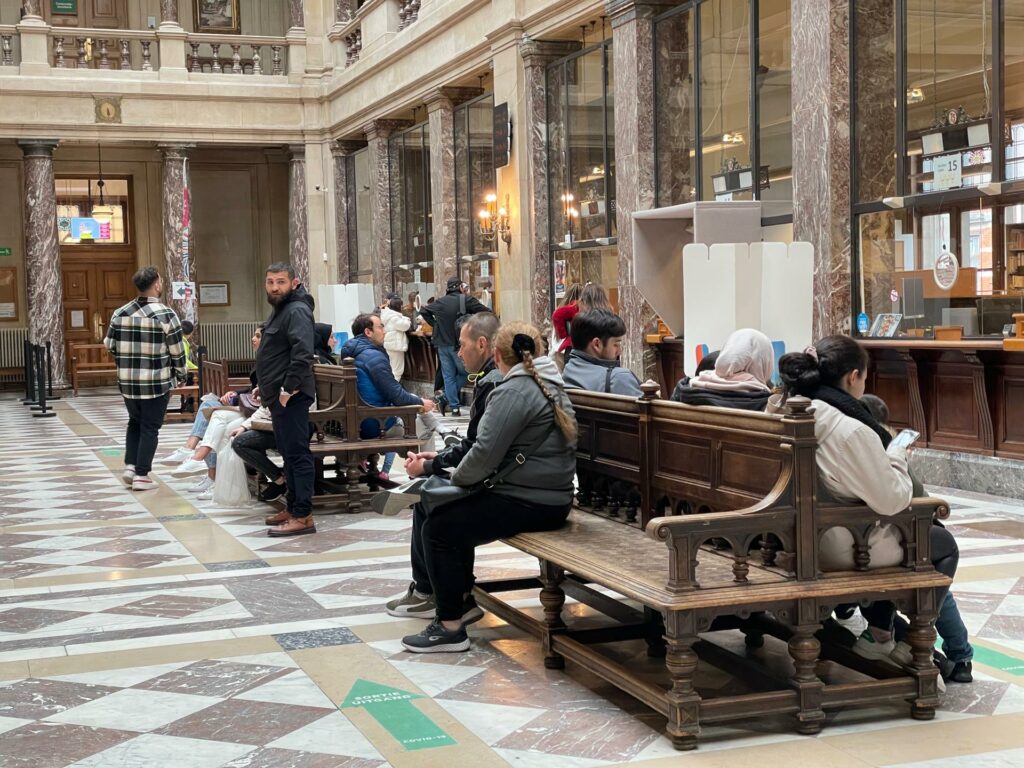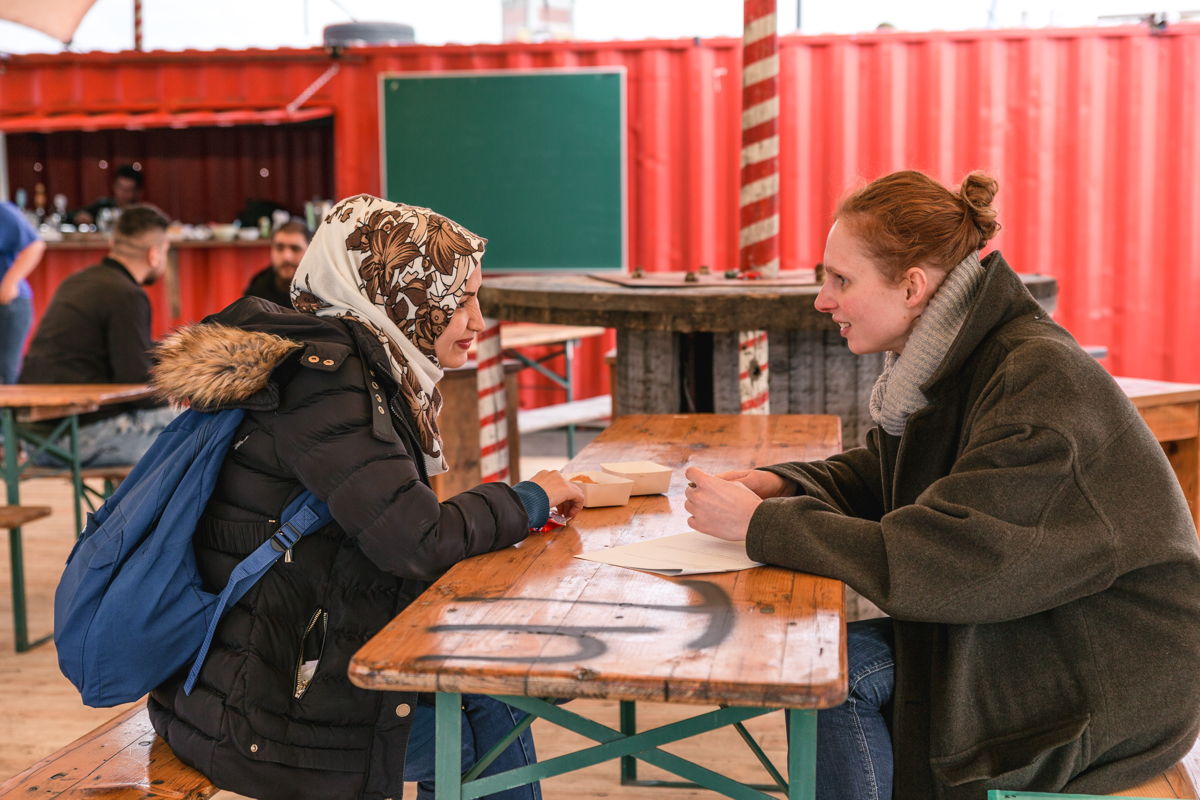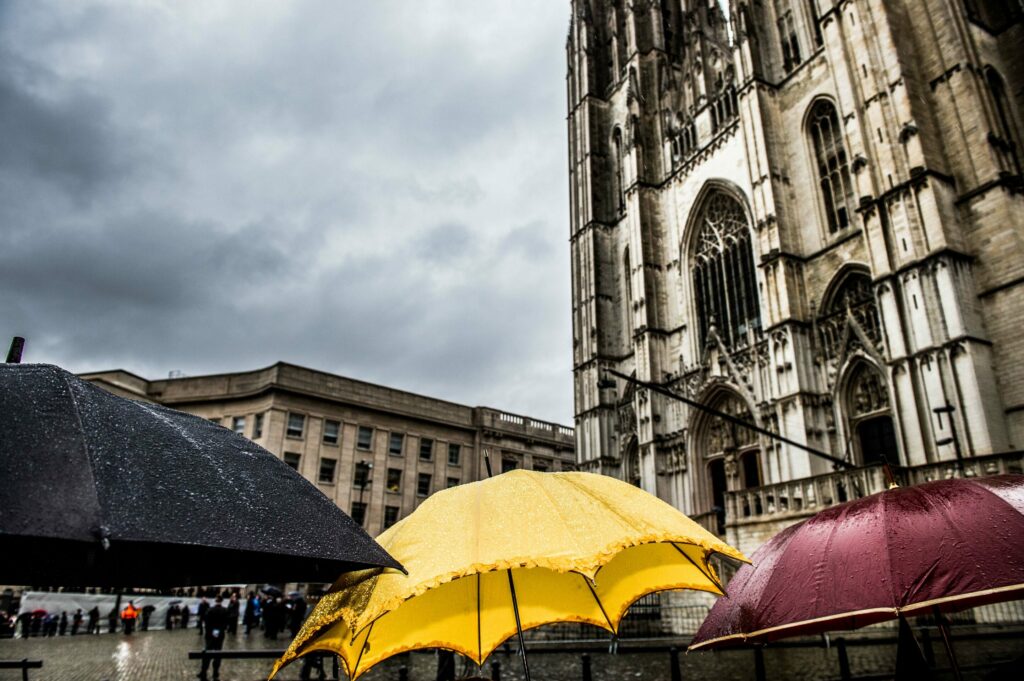The Flemish right-wing N-VA party submitted a proposal to the Chamber to make Belgium's citizenship law stricter, which includes increasing the cost of the application procedure from €150 to €5,000. Here's what you need to know.
N-VA MP Theo Francken (former State Secretary for Asylum and Migration) believes that Belgian nationality is not just a piece of paper, but a "precious asset" and an "honour" that cannot be obtained for free. In addition to the cost, he wants to tighten other rules.
"Our budget is under severe pressure, partly due to the high cost of migration for our society," Francken told Het Laatste Nieuws when submitting the proposal. "It is only logical that we share the financial burden more fairly, so the impact does not rest solely on the shoulders of our own population."
Just last year, a record of almost 55,000 newcomers – ranging from asylum seekers to expats – were granted Belgian citizenship.
What is in the proposal?
Currently, internationals who follow the 'declaration of nationality' procedure or the naturalisation procedure to obtain Belgian nationality have to pay a registration fee of €150, which roughly equates to the administrative costs.
With the N-VA proposal, this registration fee would rise to €5,000 – a 33-fold increase in the amount to be paid. Importantly, should the application be refused, applicants will not be refunded (the current €150 fee is not refunded either).
Francken referred to countries such as the Netherlands and the UK, where the fee is €1,023 and €1,930, respectively.

The city hall of Schaerbeek. Credit: Schaerbeek
However, migration and integration expert Thomas Huddleston argued that "making Belgian citizenship the most expensive in the world would undermine the labour market integration and sense of belonging of the working and middle-class immigrants who benefit most from naturalisation."
"Affordable procedures mean they put in the effort to work, learn the language and become citizens, which improves their perception by their future employers, their neighbours and the wider public," he told The Brussels Times.
While these fees have increased over time, they have not changed exponentially. "The most expensive are still Austria and Switzerland (depending on the canton) and Ireland and the UK due to the complexity of their immigration systems," Huddleston said. "Belgium's current naturalisation fee is similar to most developed destination countries."
Learning how Belgian society works
In addition to the increased fee, Francken's proposal also includes the introduction of a compulsory and binding examination for access to Belgian citizenship, consisting of two parts: 'Knowledge of values' and 'Language'.
This would become the final stage of any integration programme, and only those who pass would receive a Belgian identity card. "As is the case in several European countries, applicants would be asked to prove their knowledge of how Belgian society works, to prove that they have integrated European values and that they know the country's history."
"They will then be asked to prove their good knowledge of one of the three official languages, depending on the region in which they live," Francken said. "If they live in Flanders, they will take a Dutch language test. If they live in Wallonia, they will take a French exam. In the German-speaking community, it will be German. And in Brussels, the language of their choice."

Non-EU newcomers already have to take Dutch classes and pass a social orientation course test, among other things. Credit: Cabinet Pascal Smet
Currently, Belgian citizenship is obtained by providing proof of successful social integration (such as a Belgian education or vocational training diploma, by certifying an uninterrupted professional career or showing that they have followed an integration programme), as well as proof of knowledge of one of the three national languages.
However, integration programmes in Belgium are not a federal responsibility, but a competency of the different language communities – making it different for those who want to apply through the Flemish or Francophone system.
In Flanders, this procedure is recommended for everyone, but only compulsory for non-EU nationals wishing to settle in Flanders. In the French-speaking community, the procedure is also compulsory but neither binding nor controlled.
In an audit report submitted to the Walloon Parliament in October 2022, the Court of Audit noted that a lack of data made it impossible to assess how many people were benefiting from this system, or even whether it was producing convincing results. The new Walloon Government said that it wants to strengthen this procedure by introducing a French test.
But is it really happening?
The stricter requirements are among the topics discussed in the Federal Government's negotiation group on migration, led by Francken, which is meeting again on Thursday.
However, there is no agreement on the proposal yet: Flemish socialists Vooruit and Francophone centrists Les Engagés are not in favour of a stricter system. However, Flemish Christian Democrats CD&V – the party of outgoing State Secretary for Asylum and Migration Nicole de Moor – supports a compulsory exam to obtain Belgian citizenship.
Still, the enormous rise in cost to €5,000 is considered almost a provocation and some hefty profiling on Francken's part: one month before the municipal elections, firm campaign language is never far away.

